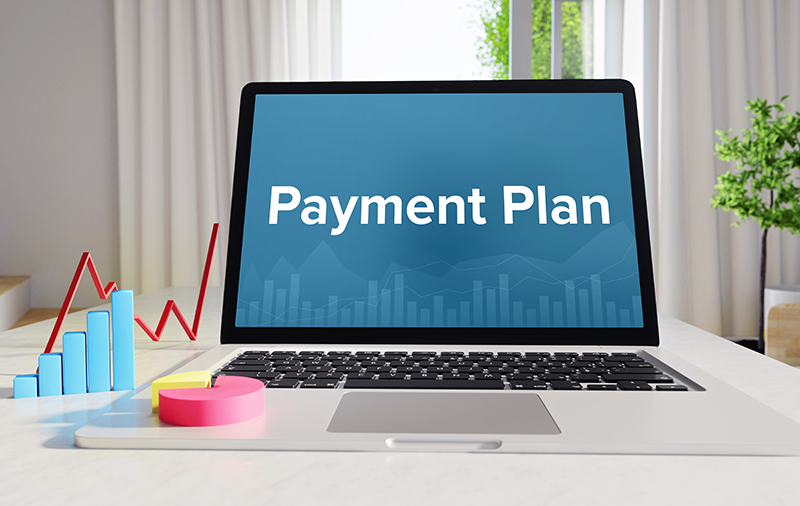I owe the IRS taxes. How do I get on a payment plan?
July 16, 2020 by Karen Thomas-Brandt, EA
A refund is the outcome many of us hope for at tax time, but let’s face it, sometimes we owe. And sometimes we owe a lot. So, what are our options and how do we get on a payment plan with the IRS?
Obviously, to avoid penalties and interest, the best payment option is to pay your tax bill in full; however, if that isn’t possible, try to pay as much as you can to keep your penalties and interest down. If you need some time to pay, the IRS has a few payment plan options available:
Short-term payment plan (paying in 120 days or less) – If you need a few months to pay your tax bill off, you can set up a short-term payment plan for a $0 setup fee. Payments can be made directly from your checking or savings account, or by check, money order or debit/credit card (note that fees apply to payments by card). Your balance will accrue interest and penalties until it is paid in full.
Long-term payment plan (paying in more than 120 days) – Also known as an Installment Agreement, this option will give you more time than the short-term payment plan (generally, up to 72 months if you owe $50,000 or less), but will require a setup fee (amounts range between $31 and $225, depending on your income level and payment method; low-income taxpayers may be able to have the fee waived). Like the short-term method, payments for Installment Agreements can be made directly from your checking or savings account, or by check, money order or debit/credit card (fees apply). Your balance will accrue interest and penalties until it is paid in full.
If you are currently on an existing payment plan, you can make changes to that plan by logging into the Online Payment Agreement tool on the IRS website. Please see https://www.irs.gov/payments/online-payment-agreement-application.
These are just a few of the options available to taxpayers who have IRS tax debt. To review all tax debt relief solutions and for more information, please visit our website. Our experienced tax professionals will help you figure out the best IRS tax debt settlement option for you.





